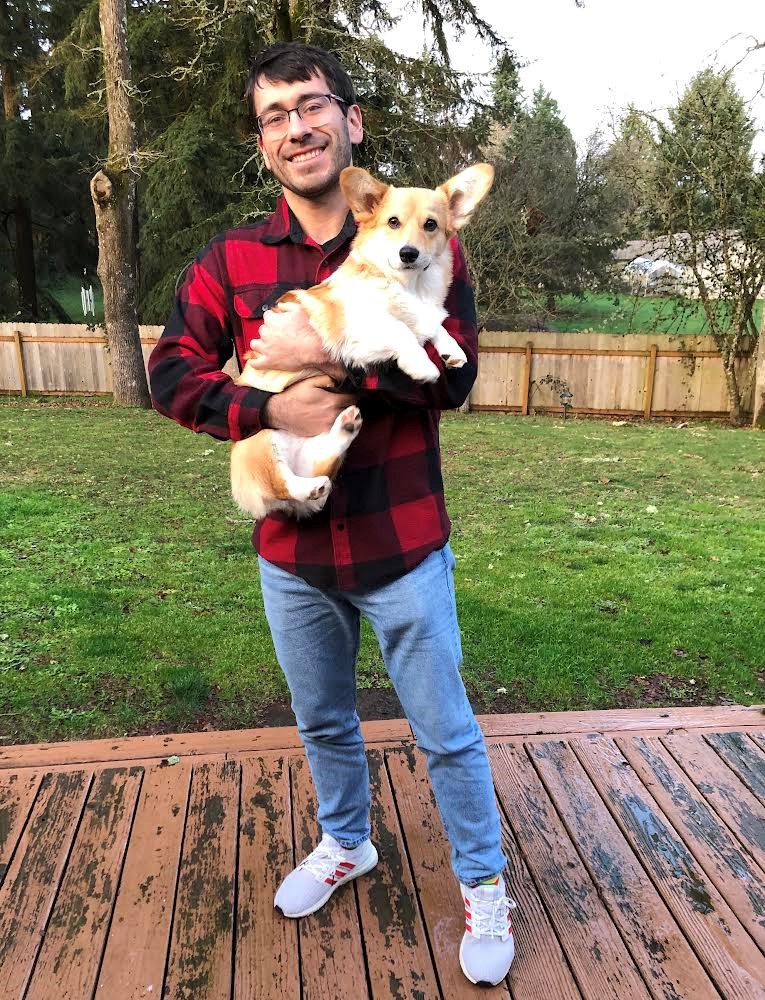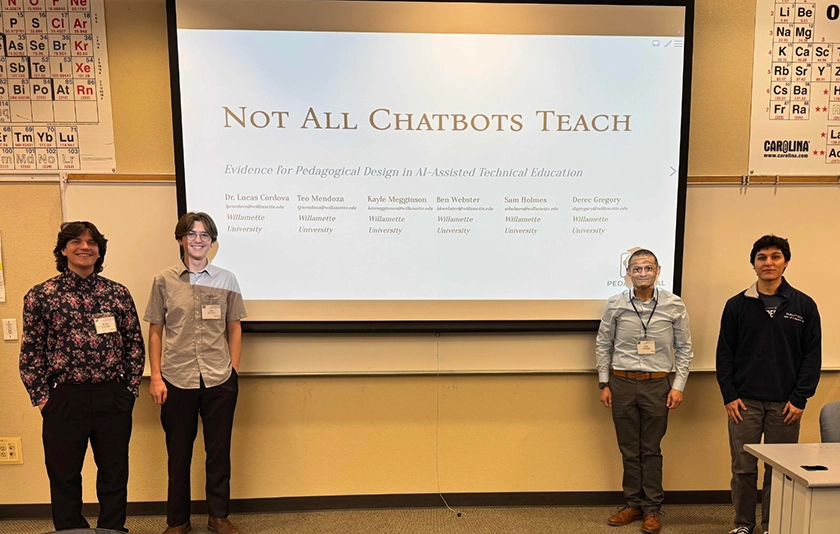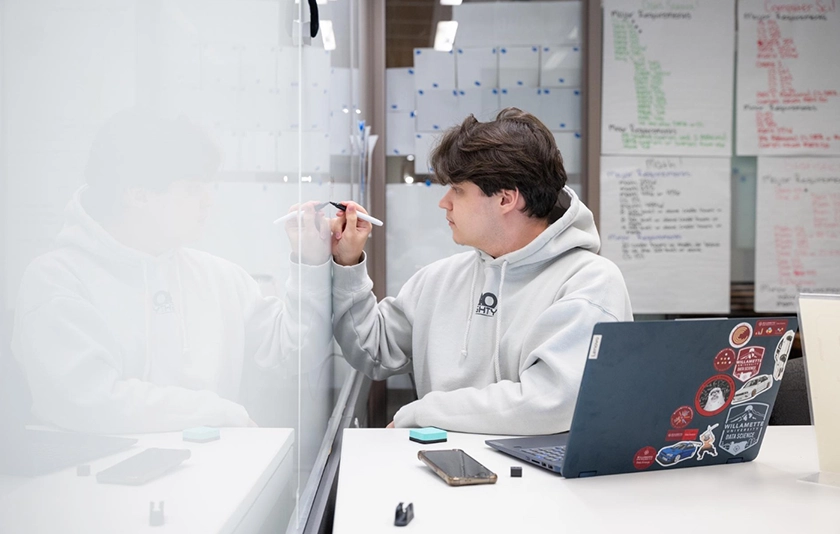 As a Product Security Engineer at Zendesk, Carlos Luevanos BA’18 spends his days as one of the resident safety experts testing software for vulnerabilities or protecting customers from cyber threats. However, when he first started at Willamette, he didn’t really know what Computer Science was.
As a Product Security Engineer at Zendesk, Carlos Luevanos BA’18 spends his days as one of the resident safety experts testing software for vulnerabilities or protecting customers from cyber threats. However, when he first started at Willamette, he didn’t really know what Computer Science was.
“I planned on majoring in Biology and wanted to become a doctor,” he shares. “It turned out pretty quickly that Chemistry was really not a fit for me.”
The field seemed daunting at first, but he was hooked after taking Professor Haiyan Cheng’s course Problem Solving with MATLAB — a common programming language used to analyze data, develop algorithms, create graphics, and more.
“I was very interested in what humans could do with computers, so the next academic year I decided to make Computer Science my major,” he recalls. Spending caffeine-fueled weekends in Ford Hall, participating in the National Cyber League competition once a year, and building relationships with other Computer Science students, Luevanos thrived in the program.
“We got to form strong connections on group projects,” he says. “In hindsight, working together so often simulated what it's like to work for a real-world tech company.”
If you’ve ever received help with a product you ordered online, odds are Luevanos made sure features of the Zendesk customer service suite were safe to use. He now works with Zendesk’s engineering team as a security specialist to ensure they develop software with protections built into them.
“Engineering teams are always creating cool new features, tools and products. I love collaborating with them,” he shares. “Hashing out ideas, doing threat modeling, reviewing their architecture and system design work, and just getting to know the intimate technical details of what they’re making to figure out how to make it secure is a satisfying feeling.”
Building on the affinity for cybersecurity he first developed at Willamette, Luevanos performs offensive security to test the new software: “I’m hacking away at what they make to point out where hackers could use vulnerabilities against our customers and us.”
Luevanos encourages every Computer Science student to take advantage of everything available to them. By Professor Cheng’s suggestion, Luevanos landed a Research Experience for Undergraduates (REU) at Boise State University, where he could focus on software security. “I even had a paper published at a conference months later,” he adds. “I highly recommend students take the opportunity to do an REU or even a couple. If they have the skills and/or connections, try to get internships at some of the big tech companies.”


